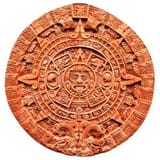Anonymous
(ID: 3AKRF2yi)
 9/4/2025, 6:50:45 PM
No.514805510
[Report]
>>514806144
>>514806862
>>514807583
>>514813081
9/4/2025, 6:50:45 PM
No.514805510
[Report]
>>514806144
>>514806862
>>514807583
>>514813081
The Politics of Time
>The mechanical clock came into existence in Europe about 500 years ago.
>Prior to that they used sun dials made of stone or bronze to approximate time.
>For Westerners, this means time has always existed as something independent of ourselves
>Time is moving forward and you are in it for a limited period.
>There is a fixed, unaltered past, a momentary present, and a large and uncertain future.
>There is no evidence that Sub Saharan Africa or Australian aboriginals ever even had stone sun dials.
>Africans interpret time as something that is "created" by doing something.
>Time is merely a singular present moment and that moment flows into you from a mutable past. The future does not exist.
>Some non Western languages lack words for things like days of the week or even the concept of a week, instead all time tracking is event based
>Some African languages don't even have a past/present/future tense and are completely context dependent.
>Today, 57% of Americans under 30 are unable to tell time reading an analog clock.
>Many cannot even read Roman numerals found on more traditional clock faces.
What are the implications of all this? It seems to me like it would explain a huge amount of the problems non Westerners have with integration and would explain also why their countries struggle to industrialize. You can have a factory making machine parts when we can't all agree on how long a second is, or whether it even matters if the factory is still here tomorrow.
>Prior to that they used sun dials made of stone or bronze to approximate time.
>For Westerners, this means time has always existed as something independent of ourselves
>Time is moving forward and you are in it for a limited period.
>There is a fixed, unaltered past, a momentary present, and a large and uncertain future.
>There is no evidence that Sub Saharan Africa or Australian aboriginals ever even had stone sun dials.
>Africans interpret time as something that is "created" by doing something.
>Time is merely a singular present moment and that moment flows into you from a mutable past. The future does not exist.
>Some non Western languages lack words for things like days of the week or even the concept of a week, instead all time tracking is event based
>Some African languages don't even have a past/present/future tense and are completely context dependent.
>Today, 57% of Americans under 30 are unable to tell time reading an analog clock.
>Many cannot even read Roman numerals found on more traditional clock faces.
What are the implications of all this? It seems to me like it would explain a huge amount of the problems non Westerners have with integration and would explain also why their countries struggle to industrialize. You can have a factory making machine parts when we can't all agree on how long a second is, or whether it even matters if the factory is still here tomorrow.






